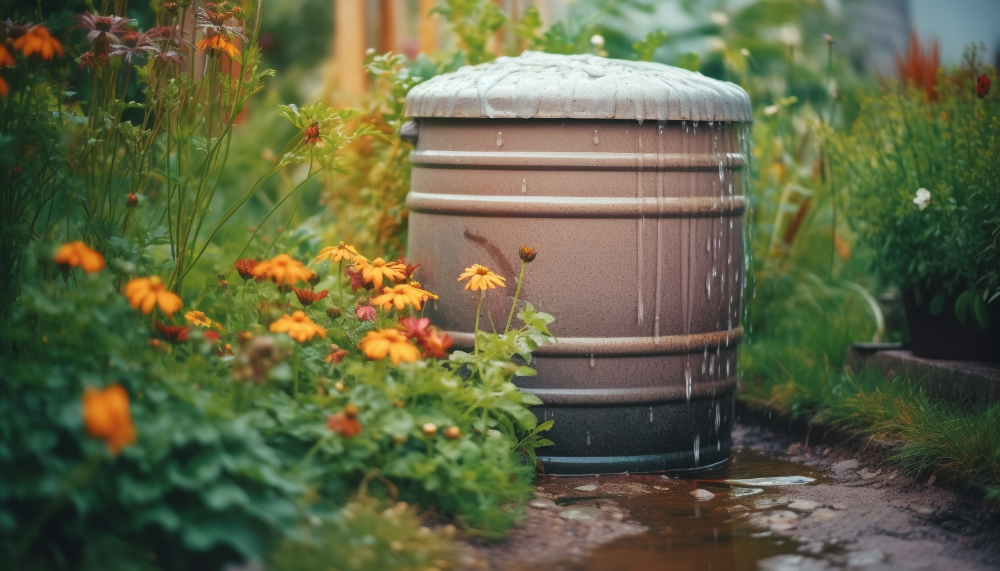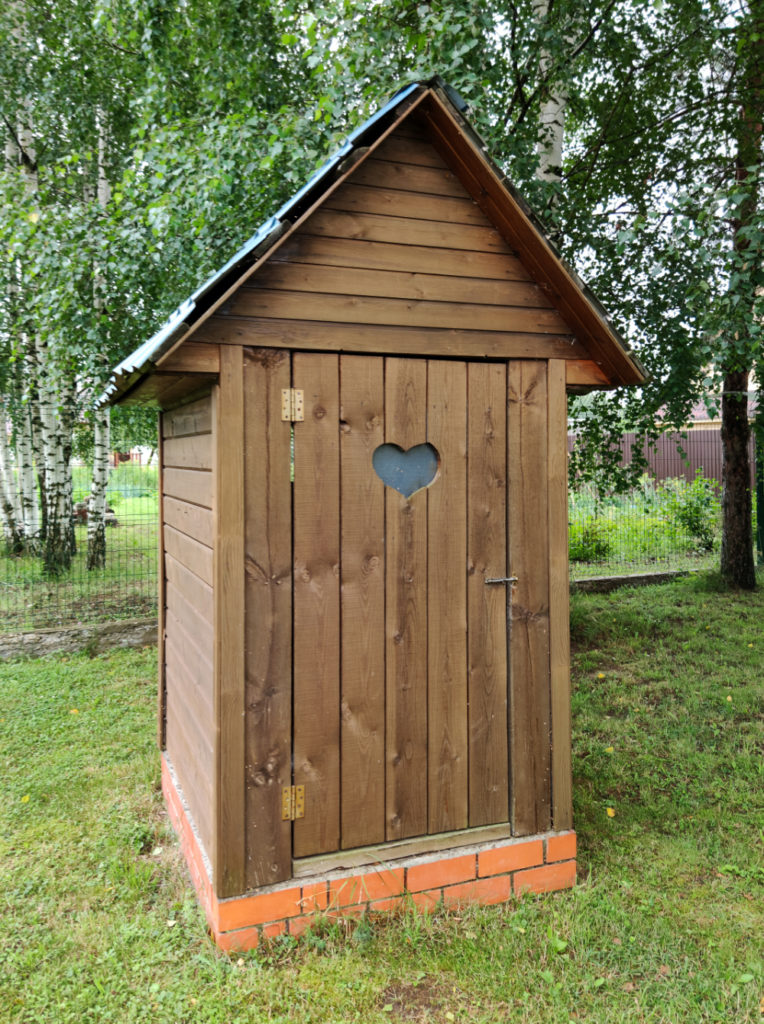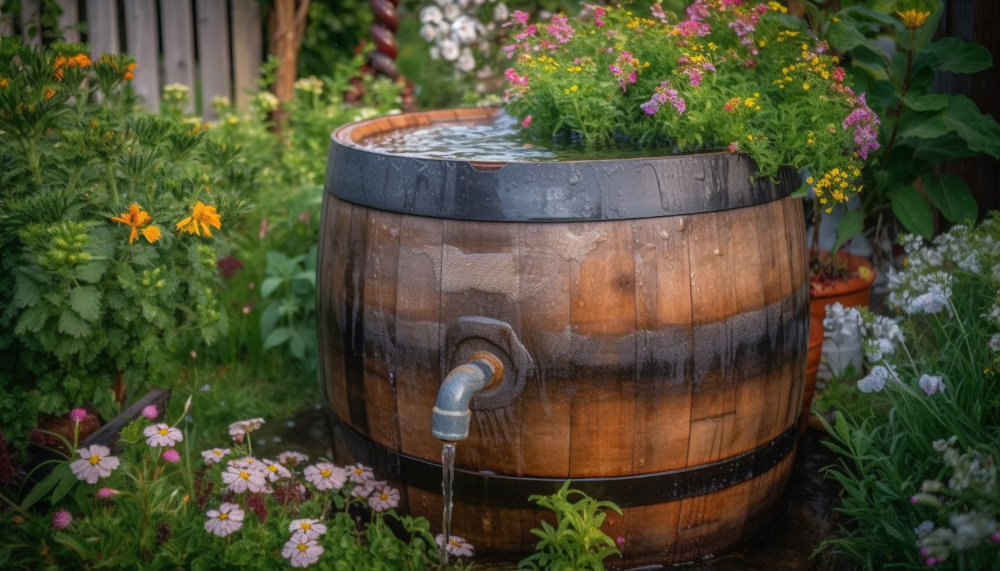In a world increasingly reliant on modern conveniences and the grid, there’s a growing movement of individuals and families choosing to live off-grid. This lifestyle isn’t just about escaping the hustle and bustle of city life; it’s a conscious decision to reduce one’s environmental footprint, become more self-reliant, and embrace a simpler, more sustainable way of life.
Self-Sufficiency in Energy: Solar and Wind Power
Off-grid living often begins with energy independence. Many off-gridders harness solar panels and wind turbines to generate electricity. These renewable sources provide power for lighting, heating, and appliances, reducing reliance on fossil fuels and centralized power grids.
Harnessing the Power of the Sun: The Magic of Solar Panels
Solar panels, also known as photovoltaic (PV) panels, are the unsung heroes of renewable energy. They are designed to capture sunlight and convert it into electricity, offering a clean and sustainable alternative to traditional fossil fuel-based power generation. At the heart of a solar panel are countless solar cells, typically made of silicon, which absorb photons from sunlight. This absorption creates an electrical current, initiating a process that ultimately produces usable electricity.
Solar panels come in various sizes and configurations, from small rooftop installations on residential homes to vast solar farms that can power entire cities. The growth of solar panel technology has revolutionized the energy industry, making clean energy accessible and helping combat climate change by reducing greenhouse gas emissions.
Benefits of Using Solar
The adoption of solar panels brings a myriad of benefits. First and foremost, solar power generation is environmentally friendly, producing no harmful emissions or pollutants. This green energy source reduces dependence on fossil fuels, helping combat air pollution and climate change. Additionally, solar panels can significantly lower electricity bills, particularly for homeowners who invest in rooftop solar systems. Governments and utilities also offer incentives and subsidies to encourage solar adoption, making it an economically attractive choice. Moreover, excess energy generated by solar panels can often be sold back to the grid, providing additional savings and income for homeowners and businesses. As technology advances and the efficiency of solar panels continues to improve, the future shines brightly for this sustainable energy source, paving the way for a cleaner, more sustainable world.
We do need to consider the issue of obtaining the metals necessary for making these panels.
Solar Plus Hydrogen
Introducing The Hydrogen House. This is a house in Hopewell New Jersey that has been completely off grid for years. He even drives a car that runs on water!!
https://www.hydrogenhouseproject.org/index.html
Harnessing the Wind: The Power of Wind Energy
Wind power, one of the oldest forms of renewable energy, has evolved into a sophisticated and sustainable solution for our modern energy needs. This ingenious technology harnesses the kinetic energy of moving air masses to generate electricity. Wind turbines, towering structures crowned with large rotor blades, stand as sentinels against the sky, capturing the force of the wind and converting it into clean, renewable power.
As the wind pushes against the blades, it causes them to spin, activating a generator that produces electricity. Wind power has gained immense popularity worldwide as a key player in the transition towards cleaner and more sustainable energy sources, contributing significantly to the reduction of greenhouse gas emissions and the fight against climate change.
The Advantages of Wind Energy:

Wind energy offers a multitude of advantages, both for the environment and for society as a whole. Firstly, it is a clean and renewable energy source, producing no greenhouse gas emissions or air pollutants during electricity generation. This significantly reduces the carbon footprint of electricity production and helps combat climate change. Wind power is also a domestic energy source, promoting energy independence and reducing reliance on fossil fuels. It creates jobs in manufacturing, installation, and maintenance, contributing to local economies. Moreover, wind farms can be situated on agricultural land, allowing farmers to continue using their land for farming purposes and receive lease payments for hosting wind turbines. As technology advances and wind turbines become more efficient and cost-effective, wind energy is poised to play an even more significant role in our sustainable energy future.
Keep in mind that you need a dependable, constant windy spot.
Sustainable Water Solutions: Wells and Rainwater Harvesting
Access to clean water is crucial for off-gridders. Some drill wells for a consistent water supply, while others rely on rainwater harvesting systems. Efficient water management, including filtration and recycling, ensures a sustainable water source year-round.
Well water
Water from wells can be an excellent source of drinking water for many reasons:
Natural Source:** Well water is typically drawn from underground aquifers, which are natural reservoirs of freshwater. It is often less susceptible to surface water contaminants, making it a cleaner and purer source of water.
No Added Chemicals: Municipal water supplies often add chlorine and other chemicals to disinfect the water. Well water, being sourced from underground, generally doesn’t require these treatments, resulting in water that many people find tastes better and is free of chemical additives.
Mineral Richness: Well water often contains beneficial minerals like calcium and magnesium, which can contribute to good health. These minerals not only enhance the taste of the water but also provide essential nutrients.
Cost Savings: For property owners with access to a reliable well, there are potential cost savings compared to paying for municipal water services. Once the well is installed, the ongoing maintenance costs are typically lower.
Independence: Having your own well gives you a degree of independence from external water providers. You’re not reliant on a third-party entity for your water needs, which can be advantageous in emergencies or during times of water scarcity.
However, it’s important to note that well water quality can vary based on location, geological conditions, and maintenance. Regular testing and proper well maintenance are essential to ensure that your well water remains safe and of high quality. Additionally, not all areas are suitable for well drilling, so it’s essential to consult with local authorities and professionals to assess the feasibility and safety of well water in your location.
There are some areas of the country where there was chemical dumping around government bases, Like Camp Lejeune in North Carolina. Also in Warminster Pennsylvania, where there was dumping of fire retardant chemicals. Do your research!

Harvesting Rainwater: A Sustainable Practice
Collecting rainwater is a simple yet effective way to harness a valuable natural resource and reduce your reliance on municipal water supplies. To collect rainwater at your home, you’ll need a few basic components: a catchment system, gutters and downspouts, a storage container, and a filtration system. First, ensure your roof has gutters and downspouts to channel rainwater efficiently. Install a mesh or leaf guard to prevent debris from entering the system. The downspouts should direct water into a storage container, such as a rain barrel or cistern. These containers can range in size from small barrels to large underground tanks, depending on your needs and available space.
Proper Filtration and Usage of Rainwater:
To ensure the collected rainwater is safe for various uses, consider installing a filtration system to remove debris, leaves, and potential contaminants. A first flush diverter can be added to divert the initial flow of water, which may contain pollutants, away from the storage container. The collected rainwater can be used for various purposes, including watering gardens, lawns, and indoor plants, as well as for washing vehicles and outdoor cleaning tasks. For indoor use, additional treatment and filtration may be necessary to meet potable water standards. By implementing a rainwater harvesting system, you not only reduce your reliance on municipal water supplies but also contribute to water conservation and sustainable living practices.
Eco-Friendly Building Practices: Tiny Homes and Natural Materials
Off-grid homes are often designed with eco-consciousness in mind. Tiny homes, constructed using sustainable materials like reclaimed wood and straw bales, minimize energy consumption and maintenance. Earthships, with their passive solar design, exemplify off-grid architecture.
Tiny Home Lifestyle: A Path to Simplicity and Sustainability
Living in a tiny home has gained popularity for several compelling reasons. Firstly, it offers a simplified and clutter-free way of life. With limited space, residents are forced to prioritize what truly matters to them, leading to a more intentional and minimalist lifestyle. This can be liberating, as it allows individuals to break free from the consumerist mindset that often leads to excessive material possessions and debt. Living in a tiny home encourages mindfulness and fosters a deeper connection to one’s belongings and surroundings.
Secondly, tiny homes are inherently more sustainable. They have a smaller environmental footprint, requiring fewer resources to build and maintain. Their reduced energy consumption, often through the use of efficient heating, cooling, and insulation, contributes to lower utility bills and a smaller carbon footprint. Additionally, tiny homes can be designed to be off-grid or equipped with renewable energy sources like solar panels, further reducing their environmental impact. In a world where environmental concerns are paramount, tiny homes offer a viable solution for those seeking a more eco-conscious way of living.
Waste Reduction and Composting: Sustainable Living
Off-gridders prioritize waste reduction and recycling. Composting toilets and systems for recycling graywater help minimize environmental impact. They embrace the principles of “reduce, reuse, recycle” wholeheartedly.

Composting Toilets: Sustainable Sanitation for a Greener Future
Composting toilets are innovative and environmentally friendly alternatives to traditional flush toilets. These systems transform human waste into valuable compost through natural decomposition processes. Composting toilets typically separate solid waste from liquid, allowing the solids to compost over time in a dedicated chamber. Microorganisms and aerobic bacteria break down the waste into nutrient-rich humus, which can be safely used as a natural fertilizer.
Well they say they are innovative. This shows you my age by telling you I grew up with one of these. I didn’t use a regular toilet until I went to school. I thought my grandmother’s place was great “up the country” because she had a 2 holer, (2 seats). This was great because the wasps that lived down there had a way to go in and out while you are using it. Think about that problem with a 1 holer!!
Composting toilets offer several advantages: they conserve water by eliminating the need for flushing, reduce the burden on sewage treatment plants, and produce a valuable resource for sustainable agriculture. These eco-conscious sanitation solutions are gaining popularity as we strive for more sustainable and water-efficient practices in a world facing increasing water scarcity and environmental challenges.
Food Independence: Gardens and Homesteading
Growing their own food is a cornerstone of off-grid living. Vegetable gardens, fruit trees, and even livestock provide a steady source of sustenance. Canning and preserving techniques ensure food availability year-round.
The Self-Sufficiency of Gardening:
A garden is a powerful tool that empowers individuals to become more self-sufficient. By growing their own food, people can reduce their reliance on external food sources and gain greater control over what they consume. A well-tended garden can provide a diverse range of fresh fruits, vegetables, and herbs, reducing the need for frequent trips to the grocery store and minimizing the environmental impact associated with food transportation.
Moreover, gardening fosters self-reliance by imparting valuable skills in plant cultivation, soil management, and sustainable gardening practices. As individuals tend to their gardens, they not only harvest nutritious produce but also cultivate a sense of independence and resilience, enhancing their ability to provide for themselves and their families while promoting sustainable living practices.
Minimalism and Mindful Living: The Art of Simplicity
Minimalist Living and Resourcefulness: Less is More**
Off-gridders often adopt minimalist lifestyles, valuing experiences over possessions. Resourcefulness and DIY skills become second nature, as they repair, repurpose, and create their necessities.
Minimalism is a lifestyle that champions simplicity, intentionality, and the pursuit of what truly matters. At its core, minimalism encourages individuals to declutter their lives, both physically and mentally, by letting go of excess possessions, distractions, and unnecessary commitments. This practice not only results in a more organized and aesthetically pleasing environment but also cultivates mindfulness. By consciously curating their surroundings and focusing on the essential aspects of life, minimalists find greater clarity, reduced stress, and an enhanced appreciation for the present moment.
Mindful Living: Connection to Nature
Living off-grid fosters a deep connection to the natural world. Off-gridders are attuned to the seasons, weather patterns, and the importance of conservation. This lifestyle encourages mindfulness and appreciation of the environment.
Mindful living, intertwined with minimalism, involves paying deliberate attention to daily experiences, savoring the beauty of simplicity, and fostering deeper connections with oneself and others. Together, minimalism and mindful living offer a path to a more purposeful, content, and harmonious existence in an increasingly complex and fast-paced world.
Challenges and Rewards: The Off-Grid Journey
While off-grid living offers numerous rewards, it also comes with challenges. The initial investment in renewable energy systems can be substantial, and adapting to a simplified lifestyle may require adjustments. However, for many, the sense of self-sufficiency, reduced environmental impact, and a closer connection to nature outweigh the challenges.
The Challenges of the Off-Grid Journey: Navigating the Road Less Traveled
While embracing off-grid living offers numerous rewards, it also presents its unique set of challenges. One of the most significant hurdles is the initial investment in renewable energy systems, water infrastructure, and other off-grid necessities. These upfront costs can be substantial and require careful financial planning. Additionally, adapting to a simplified lifestyle may demand adjustments, especially for those accustomed to the conveniences of modern urban living. Managing energy consumption, conserving water, and acquiring self-sufficiency skills can be a learning curve.
Furthermore, off-grid living often entails dealing with natural elements and uncertainties. Depending on the location, residents may face extreme weather conditions, such as harsh winters or scorching summers, which can impact energy generation and daily life. Ensuring a reliable and clean water supply can be challenging, particularly in arid regions. Moreover, while the off-grid lifestyle promotes independence, it can also be isolating for those used to the social amenities of urban areas. Nonetheless, for many, the sense of self-sufficiency, reduced environmental impact, and a closer connection to nature outweigh these challenges, turning the off-grid journey into a transformative adventure towards a more sustainable and fulfilling way of life.
The Rewards of the Off-Grid Journey: A Life of Purpose and Sustainability
The off-grid journey offers a plethora of rewards that enrich the lives of those who embrace it. One of the most compelling benefits is a deep sense of self-sufficiency and independence. Off-gridders become masters of their own destiny, relying on renewable energy sources, sustainable water solutions, and homegrown food. This self-reliance not only fosters a profound connection to the land but also empowers individuals to navigate life’s challenges with resilience and resourcefulness.
Furthermore, off-grid living significantly reduces one’s environmental footprint. By generating clean energy, conserving water, and minimizing waste, off-gridders contribute to a healthier planet and combat climate change. This eco-conscious lifestyle aligns with the values of sustainability and responsible stewardship of natural resources. Additionally, the off-grid journey encourages a simpler and more intentional way of living, allowing individuals to focus on what truly matters. It cultivates a profound appreciation for nature, mindfulness, and a sense of purpose that extends far beyond the grid. Ultimately, the rewards of the off-grid journey are not just ecological and practical; they are deeply personal, offering a path to a life of meaning, fulfillment, and sustainable harmony with the world around us.
Embracing off-grid living is a conscious choice to live in harmony with the planet while reducing dependency on traditional utilities and infrastructure. It’s a lifestyle that encourages sustainability, self-reliance, and a deeper appreciation for the natural world. Whether it’s a remote cabin in the woods or a sustainable homestead, off-grid living is a transformative journey that invites individuals to rethink their relationship with the environment and the modern grid.




